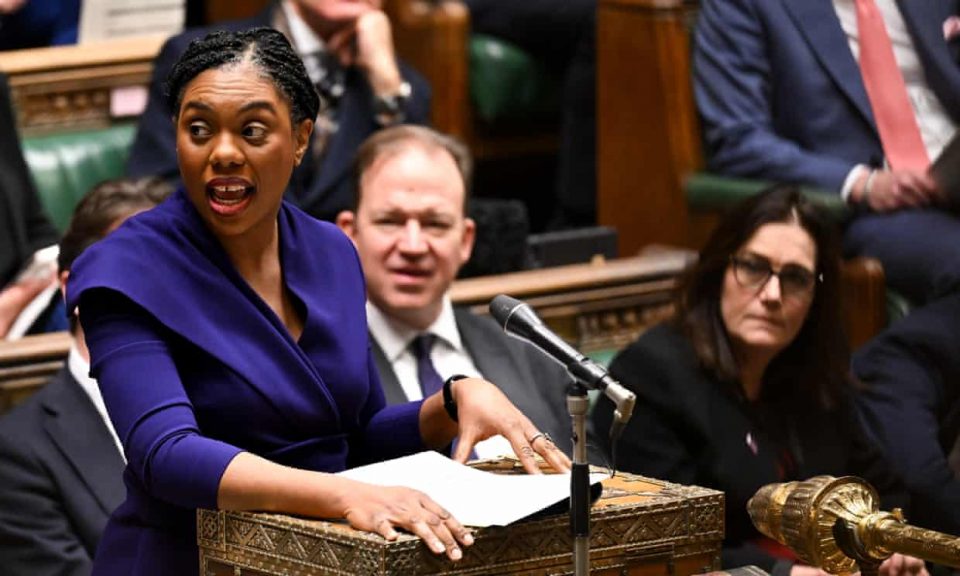Kemi Badenoch, who criticized a Labour manifesto highlighting the potential for the UK’s Prevent program to alienate communities, co-authored a report that similarly raised concerns about the impact of this anti-radicalization initiative on community relations.
The current Conservative leader supported a 2015 inquiry that asserted “the public must not be overlooked in the battle against extremism,” acknowledging that Prevent faced criticisms of excessive police enforcement.
On Tuesday, she expressed dissatisfaction with the prime minister and home secretary’s handling of Prevent. She posted on X: “At a time when the Conservatives sought to strengthen the Prevent anti-extremism program, [Keir] Starmer and [Yvette] Cooper campaigned on manifestos expressing concern about Prevent’ s potential to ‘alienate communities.’”
The government’s counter-terrorism initiative is undergoing significant revisions after its failure to prevent numerous murders in recent years—including that of Axel Rudakubana from Southport, who was sentenced recently.
Rudakubana, aged 18, had been referred to Prevent on three occasions. On Monday, he pleaded guilty to the murders of six-year-old Bebe King, nine-year-old Alice da Silva Aguiar, and seven-year-old Elsie Dot Stancombe, along with attempted murder of ten others at a Taylor Swift-themed holiday camp last summer.
Following the Southport incident, the Conservative party has criticized Labour’s 2019 manifesto, which promised a review of the Prevent program to “evaluate … its potential to alienate communities.”
In 2015, Badenoch served on the London Assembly’s police and crime committee and was among the eight members who produced a comprehensive 50-page report titled Preventing Extremism in London.
This report assessed Prevent, the official national effort to identify individuals at risk of succumbing to extremist ideologies and redirect them away from violence. Those referred to the program, both children and adults, undergo evaluations; if deemed a risk, interventions are employed to mitigate that threat.
The findings highlighted concerns that Prevent was “subject to allegations of police overreach and surveillance” and remarked on its “troubled past, causing it to be labeled as a ‘damaged’ brand and met with skepticism by some.”
“Engaging the community is vital for Prevent’s success,” the report observed, cautioning that “the existing ‘top-down’ method of implementing Prevent makes citizen engagement challenging.”
In its conclusion, the report stated that “the public must not be an overlooked partner in combating extremism; community involvement proves effective, yet it is the hardest aspect to achieve.”
One assembly member on the committee, Green party’s Jenny Jones, presented a “minority report” within the same document due to her disagreement with all its conclusions.
Assembly members have confirmed that Badenoch endorsed the report entirely.
Jones, now a Green peer, criticized the Conservative leader for seeming to act out of political expediency.
“As a member of the London Assembly, Kemi co-authored a review in 2015 that acknowledged the flaws and possible negative effects of the Prevent strategy, including the potential alienation of communities, but it appears she took no action to address these issues during her time in government,” remarked Jones.
A source from the committee added: “She fully endorsed the report. There was no suggestion of it being ‘woke.’”
Following the Southport murders, MPs across the political spectrum are calling for a significant reform of Prevent. Previous offenders referred to the program include Jake Davison, who killed five people during a 12-minute shooting spree in Plymouth in August 2021, and ISIS supporter Ali Harbi Ali, who fatally stabbed Conservative MP Sir David Amess outside a constituency meeting in 2021.
The Conservative party has been contacted for their response.


